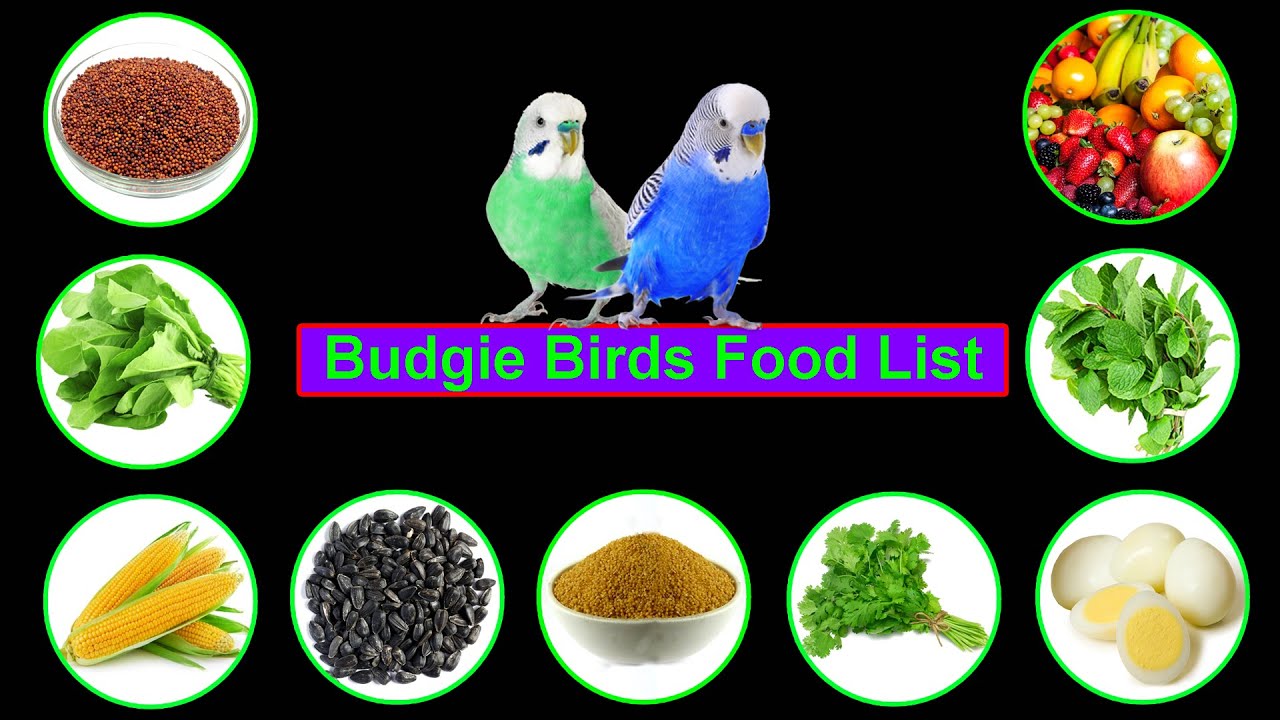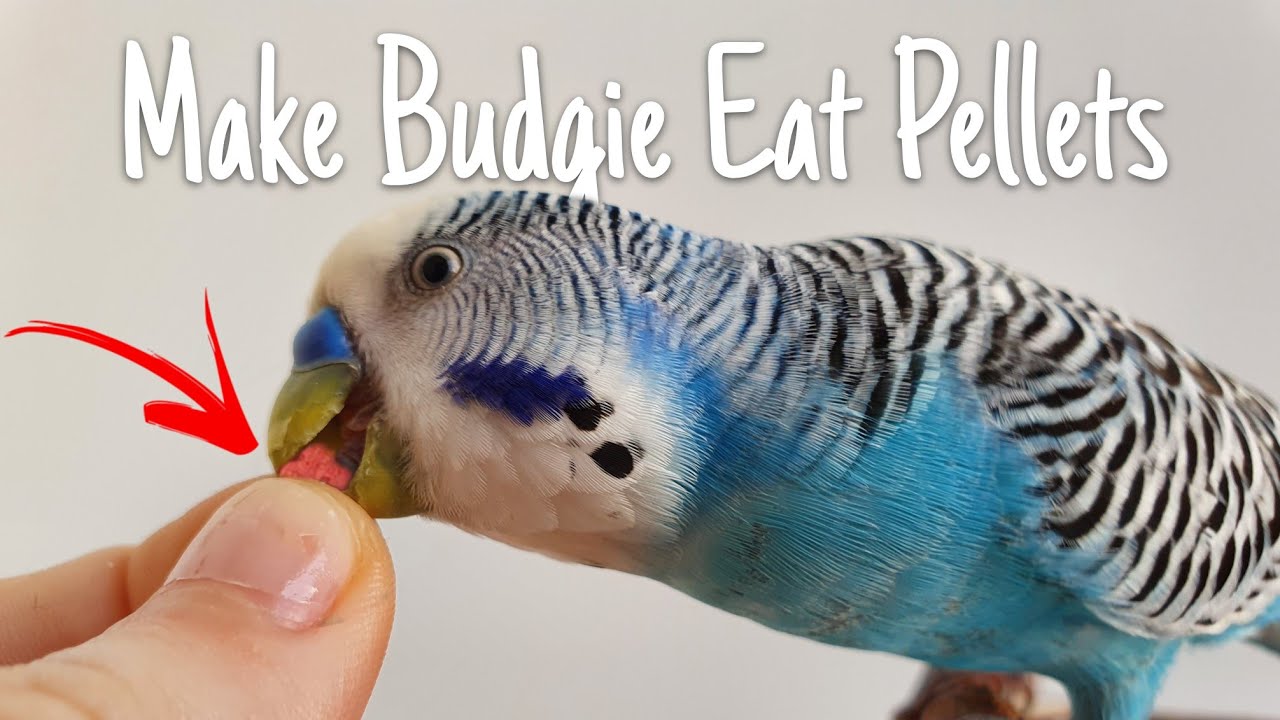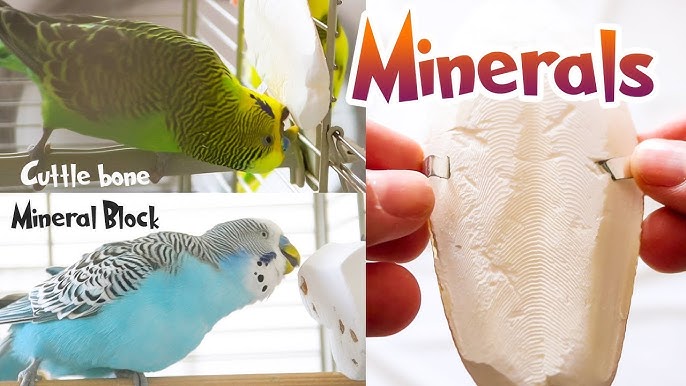What Can Budgies Eat? A List Of Nutritious And Safe Options
What can budgies eat? Get a complete list of nutritious and safe foods for your feathered friend in this guide.
Author:Velma BattleReviewer:Michael RachalOct 04, 202331.5K Shares484.9K Views

What can budgies eat list? Budgies, also known as parakeets, are popular pet birds known for their intelligence, playful personalities, and vibrant colors. Like all pets, budgies require a balanced diet to stay healthy and happy.
A balanced diet for budgies includes a variety of foods, including seeds, pellets, fruits, vegetables, and other safe foods. Seeds are a good source of energy for budgies, but they should not be the only food in their diet. Pellets are a complete diet that contains all the nutrients budgies need. Fruits and vegetables are a good source of vitamins, minerals, and antioxidants. Other safe foods for budgies include cooked eggs, yogurt, and cottage cheese.
Pet owners and bird lovers have many concerns about budgie nutrition. They want to know what foods are safe for their birds to eat and how to avoid harmful foods. They are also concerned about providing their budgies with all the nutrients they need to stay healthy.
Pet owners and bird lovers are often concerned about providing their budgies with the best possible nutrition. They want to know what foods are safe for their birds to eat and how to create a balanced diet. This article will provide a comprehensive list of nutritious and safe foods for budgies, as well as tips for choosing the best diet for your feathered friend.
This article is written for pet owners, bird lovers, and anyone else who is interested in learning more about budgie diet. Whether you are a new budgie owner or have had your bird for many years, this article can help you ensure that your budgie is eating a healthy and balanced diet.
Understanding Budgie Dietary Needs
Nutritional Requirements Of Budgies
Budgies are omnivores, meaning they eat both plants and animals. Their diet in the wild consists of a variety of seeds, grasses, fruits, insects, and other small animals.
In captivity, budgies need a balanced diet that includes all the nutrients they need to stay healthy. These nutrients include,
- Protein -Protein is essential for building and repairing tissues. Budgies can get protein from seeds, pellets, and cooked eggs.
- Carbohydrates -Carbohydrates provide energy for budgies. Budgies can get carbohydrates from seeds, pellets, and fruits.
- Fats -Fats are a source of energy and essential fatty acids. Budgies can get fats from seeds, pellets, and avocados.
- Vitamins and minerals -Vitamins and minerals are essential for overall health and well-being. Budgies can get vitamins and minerals from a variety of foods, including seeds, pellets, fruits, vegetables, and other safe foods.
Importance Of A Varied Diet For Budgies
A varied diet is important for budgies' health because it ensures that they are getting all the nutrients they need. A diet that is too high in one type of food, such as seeds, can lead to nutritional deficiencies and health problems.
A varied diet is also more interesting for budgies and can help to prevent boredom. Budgies enjoy trying new foods and will often eat more when they have a variety of choices.
Common Misconceptions About Budgie Diet
One common misconception about budgie diet is that seeds are the only thing budgies need to eat. Seeds are a good source of energy for budgies, but they should not be the only food in their diet. Seeds are high in fat and low in other essential nutrients. A diet that is too high in seeds can lead to obesity, liver disease, and other health problems.
Another common misconception is that budgies cannot eat fruits and vegetables. Fruits and vegetables are a good source of vitamins, minerals, and antioxidants. Budgies can eat a variety of fruits and vegetables, but it is important to remove any pits or seeds before feeding them to your bird.
Staple Foods For Budgies
Seed Mixes
Seed mixes are a staple food for many budgies. They are convenient and easy to find at most pet stores. However, it is important to choose a seed mix that is specifically designed for budgies. Some seed mixes contain seeds that are not safe for budgies to eat, or they may have excessive amounts of certain seeds, such as sunflower seeds.
Here are some types of seeds that are suitable for budgies,
- Canary seed
- Millet
- Safflower seed
- Oats
- Brown rice
- Quinoa
- Buckwheat
Here are some brands or types of seed mixes that are recommended for optimal nutrition,
- Harrison's Bird Foods High Potency Fine High Energy
- Roudybush Budgie Maintenance
- Lafeber's Premium Daily Diet for Budgies
- Kaytee Forti-Diet Pro Health Budgie Food
Specialized Pellets
Specialized pellets are a great way to ensure that your budgie is getting all the nutrients it needs. Pellets are a complete diet that contains all the essential vitamins, minerals, and protein that budgies need.
Here are some of the benefits of incorporating pellets into your budgie's diet,
- Pellets are a balanced diet that contains all the nutrients budgies need.
- Pellets can help to prevent obesity and other health problems associated with a seed-only diet.
- Pellets can help to reduce picky eating.
Here are some suggestions for reputable pellet brands,
- Harrison's Bird Foods
- Roudybush
- Lafeber's
- Mazuri
How To Transition Your Budgie To A Pellet Diet
If your budgie is currently on a seed-only diet, it is important to transition it to a pellet diet gradually. Sudden changes in diet can cause digestive problems in budgies.
Here is a simple way to transition your budgie to a pellet diet,
- Start by mixing a small amount of pellets into your budgie's regular seed mix.
- Gradually increase the amount of pellets in the mix each day.
- Once your budgie is eating mostly pellets, you can discontinue the seed mix altogether.
If your budgie is refusing to eat pellets, you can try soaking them in water or broth to make them softer and more appealing. You can also try mixing pellets into your budgie's favorite treat.
If you are having difficulty transitioning your budgie to a pellet diet, please consult with your veterinarian.
Fresh Vegetables And Fruits
Nutrient-rich Vegetables
Here is a variety of safe vegetables for budgies,
- Broccoli -Broccoli is a good source of vitamins A, C, and K, as well as calcium, fiber, and potassium.
- Carrots -Carrots are a good source of vitamins A and C, as well as beta-carotene, fiber, and potassium.
- Celery -Celery is a good source of vitamins A and C, as well as fiber, folate, and potassium.
- Collard greens -Collard greens are a good source of vitamins A, C, and K, as well as calcium, fiber, and iron.
- Corn -Corn is a good source of vitamins A, C, and B12, as well as fiber, magnesium, and potassium.
- Cucumber -Cucumber is a good source of vitamins A and C, as well as fiber and potassium.
- Kale -Kale is a good source of vitamins A, C, and K, as well as calcium, fiber, and iron.
- Leafy greens -Leafy greens, such as spinach, romaine lettuce, and Swiss chard, are a good source of vitamins A, C, and K, as well as calcium, fiber, and iron.
- Peas -Peas are a good source of vitamins A and C, as well as fiber, protein, and iron.
- Sweet potatoes -Sweet potatoes are a good source of vitamins A and C, as well as fiber, potassium, and vitamin B6.
Bird-Friendly Fruits
Here is a list of fruits that are safe and nutritious for budgies,
- Apples -Apples are a good source of vitamins A, C, and K, as well as fiber and potassium.
- Bananas -Bananas are a good source of vitamins A, C, and B6, as well as fiber and potassium.
- Berries -Berries, such as blueberries, raspberries, and strawberries, are a good source of vitamins A and C, as well as fiber and antioxidants.
- Citrus fruits -Citrus fruits, such as oranges, grapefruits, and lemons, are a good source of vitamins A and C, as well as fiber and potassium.
- Mangoes -Mangoes are a good source of vitamins A and C, as well as fiber and beta-carotene.
- Melons -Melons, such as cantaloupe, honeydew, and watermelon, are a good source of vitamins A and C, as well as fiber and potassium.
- Papaya -Papaya is a good source of vitamins A, C, and K, as well as fiber and potassium.
- Pears -Pears are a good source of vitamins A and C, as well as fiber and potassium.
Portion Control
It is important to feed your budgie fresh vegetables and fruits in moderation. While fruits and vegetables are a healthy part of a budgie's diet, too much sugar can lead to health problems such as obesity and diabetes.
A good rule of thumb is to offer your budgie a small amount of fresh vegetables and fruits each day, about the size of its head. You can also offer your budgie a variety of different vegetables and fruits throughout the week.
If you are concerned about your budgie's sugar intake, talk to your veterinarian. They can help you develop a healthy and balanced diet for your bird.
Protein And Additional Supplements
Protein Sources
Budgies need a diet that is high in protein. Protein is essential for building and repairing tissues, as well as for producing hormones and enzymes.
Here are some sources of protein that are suitable for budgies,
- Eggs -Eggs are a great source of protein for budgies. You can offer your budgie hard-boiled eggs, scrambled eggs, or omelets.
- Legumes -Legumes, such as beans, lentils, and peas, are another good source of protein for budgies. You can cook legumes until they are soft and mash them with a fork before offering them to your bird.
- Cottage cheese -Cottage cheese is a good source of protein and calcium. You can offer your budgie a small amount of cottage cheese a few times a week.
- Yogurt -Yogurt is another good source of protein and calcium. You can offer your budgie a small amount of yogurt a few times a week.
Cooking Tips
When preparing protein sources for your budgie, be sure to avoid adding any salt, sugar, or spices. You should also avoid cooking any protein sources with oil or butter.
Here are some cooking tips for preparing protein sources for your budgie,
- Hard-boil eggs and chop them into small pieces.
- Scramble eggs without adding any oil or butter.
- Make an omelet without adding any oil or butter.
- Cook legumes until they are soft and mash them with a fork.
- Offer cottage cheese plain.
- Offer yogurt plain.
Cuttlebone And Mineral Blocks
Cuttlebone and mineral blocks are important supplements for budgies. Cuttlebone is a natural source of calcium, which is essential for strong bones and beaks. Mineral blocks contain a variety of minerals that budgies need for good health.
Cuttlebone
Cuttlebone is a white, porous substance that is found in the shells of certain cephalopods, such as squid and cuttlefish. Cuttlebone is a good source of calcium, which is essential for strong bones and beaks.
Mineral Blocks
Mineral blocks are made from a variety of minerals that budgies need for good health, such as calcium, phosphorus, and magnesium. Mineral blocks can help to prevent nutritional deficiencies and health problems.
Recommendations
I recommend offering your budgie a cuttlebone and mineral block at all times. You can purchase cuttlebones and mineral blocks at most pet stores.
Here are some tips for using cuttlebone and mineral blocks,
- Place the cuttlebone and mineral block in a location where your budgie can easily reach them.
- Replace the cuttlebone and mineral block every few months, or sooner if they become soiled or damaged.
If you have any questions about cuttlebone or mineral blocks, please consult with your veterinarian.
Frequently Asked Questions About ___ (What Can Budgies Eat List)
Can Budgies Drink Milk?
Dairy products should be consumed in moderation, as birds are lactose-intolerant. Very salty foods (chips, pretzels, popcorn), chocolate, products containing caffeine (coffee, tea, soda), and alcoholic beverages should never be fed to your budgie.
Do Budgies Eat Potato?
Other foods you can serve include pasta, rice, toast, eggs, mashed potato, chicken bones and other meats. Fruit may be also offered but many birds will not eat it.
Can Birds Eat Yogurt?
While there are some birds that like to have milk or cheese or yogurt in their diet, many of those things do have lactose in them. Do not feed too much dairy product to a pet bird or parrot, because they can't really digest it properly, which can lead to diarrhea.
Conclusion
What can budgies eat list? Understanding and meeting a budgie's dietary needs is essential for their overall health and well-being. Providing a balanced diet that includes a variety of seeds, pellets, fresh fruits, and vegetables ensures they receive the essential nutrients they require.
Remember, a varied diet not only contributes to their physical health but also keeps them mentally stimulated and engaged. It helps prevent boredom and selective eating habits, ultimately leading to a happier and more contented bird.
However, it's important to note that individual budgies may have unique preferences and dietary requirements. Consulting with a veterinarian who specializes in avian health can provide valuable insights and personalized recommendations for your feathered friend.
Exploring different food options and observing your budgie's reactions to new foods can be a rewarding experience. It allows you to tailor their diet to suit their specific tastes and nutritional needs.
By prioritizing a balanced and varied diet, you're taking a significant step towards ensuring a long, healthy, and joyful life for your beloved budgie companion.

Velma Battle
Author
Travelling Expert

Michael Rachal
Reviewer
Travelling Expert
Latest Articles
Popular Articles

